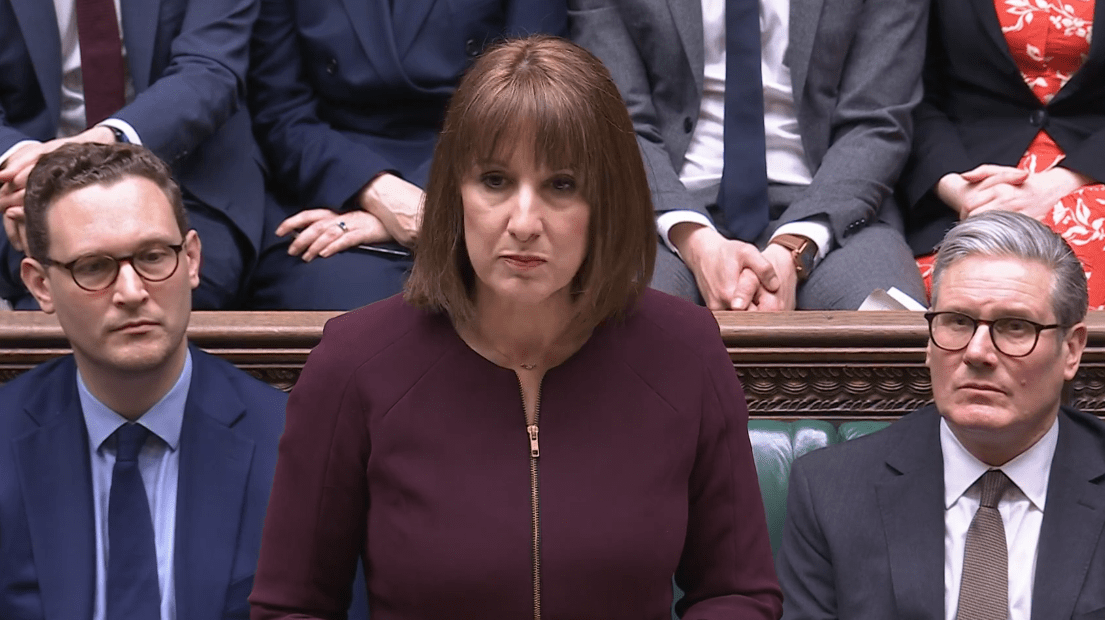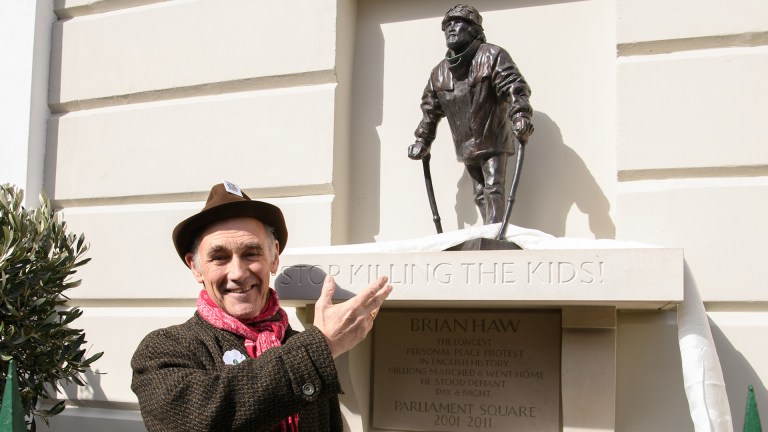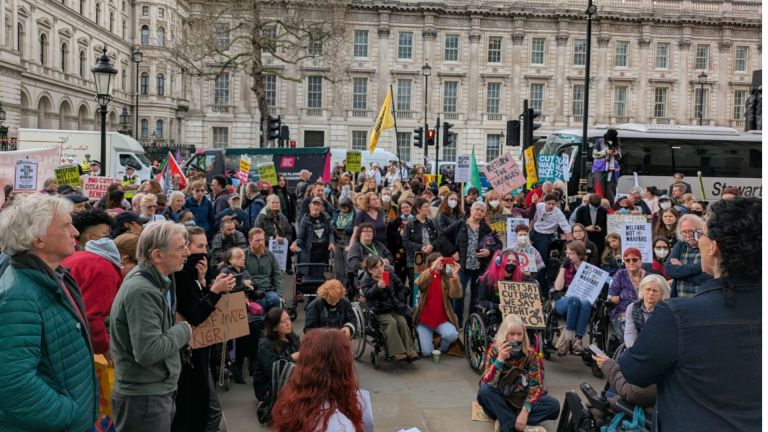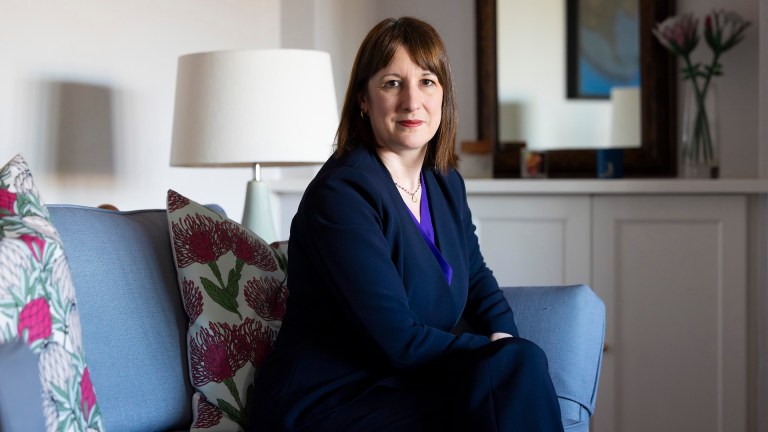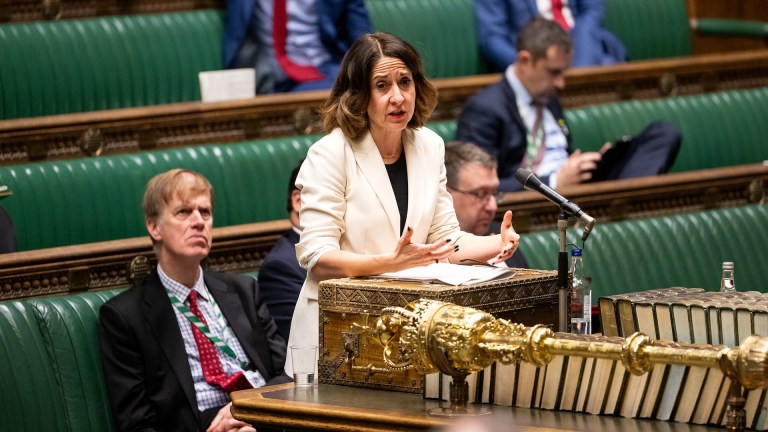“The government needs to think long-term and safeguard the state for five, 10 years’ time, when their failure to pull people out of poverty will truly come home to roost,” said Lord Bird.
“Poverty will have knock-on consequences for all our lives – from a burgeoning welfare budget burdening taxpayers, to strained public services, and opening the floodgates to a rise in far-right populism.
“Things will only change if the government spends serious money on breaking the cycle of poverty – on preventing and curing poverty. They can’t wait for fairweather days to roll over the hill before they act.”
From slashing benefits, big promises on housing, and larger defence spending, here’s what Reeves announced in her spring statement.
Incapacity benefits will be cut and then frozen
Universal credit incapacity benefits for new claimants will be cut by half to £50 a week in 2026, Reeves said, then frozen until 2030.
The basic rate of universal credit will also increase from £92 to £106 a week by 2029. Reeves was expected to announce a reduction to the rate but did not mention it in her speech.
Advertising helps fund Big Issue’s mission to end poverty
This is because the Treasury, looking to save £5bn, has reportedly had to find an extra £1.6bn of cuts on top of last week’s announcement to meet its goal. “Doing nothing is not an option. It’s failing and writing off a young generation,” defence secretary John Healey said.
The cuts are expected to have a big impact, the government has admitted. Some 250,000 people will find themselves in relative poverty as a result, including 50,000 children. A fifth of families where someone has a disability will lose out financially.
Last week, the government announced it was freezing the health element of universal credit for existing claimants until 2029. Today’s announcement extends this to new claimants. In total, the government says these measures will save £4.8bn. Reeves said welfare spending as a share of GDP will fall by the end of the OBR’s forecast, but will still increase in pure cash terms.
The announcement has prompted warnings that the cuts will lead to more deaths. “Implementing yet more cuts will result in more premature deaths. It is vital that the UK government understands this evidence and takes a different policy approach,” said professor Gerry McCartney of the University of Glasgow, part of a group of experts who published a paper in the British Medical Journal warning that welfare cuts since 2010 resulted in premature deaths, suicides, and are unlikely to increase employment rates.
Jen Clark, economic and social rights lead at Amnesty International UK, said benefits cuts were forcing more people to rely on food banks. “For too many in the UK, poverty is a political choice forced upon them. Today, the prime minister chose to make it worse,” said Clark.
Harry Quilter-Pinner, the executive director of the IPPR think tank, said the government could raise revenue without breaking its own rules on tax by closing loopholes in capital gains and inheritance tax or looking at gambling levies.
Advertising helps fund Big Issue’s mission to end poverty
“The government needs to think long-term about who should bear these costs over time – and make different choices to previous governments, not least those made by George Osborne,” said Quilter-Pinner.
Building more homes to offer big benefits
Reeves put significant focus on the government’s Planning and Infrastructure Bill, which was debated by MPs in parliament earlier this week.
The chancellor made big promises about how planning reforms, such as introducing mandatory housing targets, and infrastructure projects, including building a third runway at Heathrow Airport, will boost the economy.
Reeves said the reforms would add 0.2% to GDP in 2029-30, bringing an additional £6.8bn to the economy, rising to 0.4% or £15.1bn in a decade. The Labour chancellor hailed the impact of the reforms, remarking that it was the “biggest positive growth impact that the OBR have ever reflected in their forecast for a policy with no fiscal cost”.
On a day in which the Office for National Statistics revealed private rents across the UK rose 8.1% in the year up to February and house prices rose 4.9% in the year up to January, Reeves pledged more money to bring housebuilding to a “40-year high”.
The chancellor announced a £2bn investment in the government’s affordable homes programme would bring 18,000 new social and affordable homes. The cash injection comes from a down payment from the Treasury with more long-term investment set to be announced in June’s spending review.
Advertising helps fund Big Issue’s mission to end poverty
The planning reforms will mean 305,000 homes a year will be delivered by the end of the current parliament with 1.3 million homes set to be built over the next five years, according to the OBR.
The government has set a target of building 1.5 million homes while in power but has, so far, declined to set a target for how many will be social homes.
There will also be fresh investment in people to build the new homes with £600m to train 60,000 construction workers.
Defence spending is going up
Reeves confirmed the government will be committing £2.2bn of extra spending to defence, alongside cutting the aid budget.
Blaming a more insecure world, Reeves says increasing defence spending to 2.5% of GDP will boost economic security as well as national security even if it is paid for by reducing foreign aid spending to 0.3% of GDP.
Bob Ward, policy and communications director at LSE’s Grantham Research Institute on climate change, said the decision was “inexcusable and likely to create long-lasting damage to the UK”.
Advertising helps fund Big Issue’s mission to end poverty
Ward said: “The Labour Party committed in its election manifesto to increasing the aid budget, and could have raised taxes or borrowed more to increase on defence, instead of joining the Trump administration in penalising the world’s poorest people. This will hurt poor people and further damage our reputation and influence with developing countries.”
Do you have a story to tell or opinions to share about this? Get in touch and tell us more. Big Issue exists to give homeless and marginalised people the opportunity to earn an income. To support our work buy a copy of the magazine or get the app from the App Store or Google Play.
Big Issue is demanding an end to extreme poverty. Will you ask your MP to join us?
